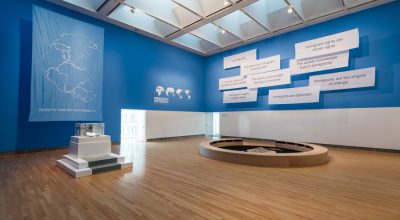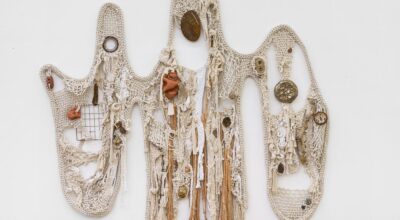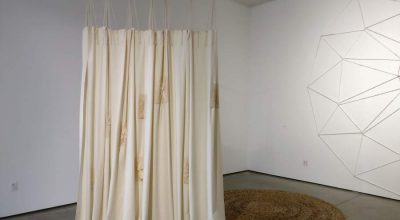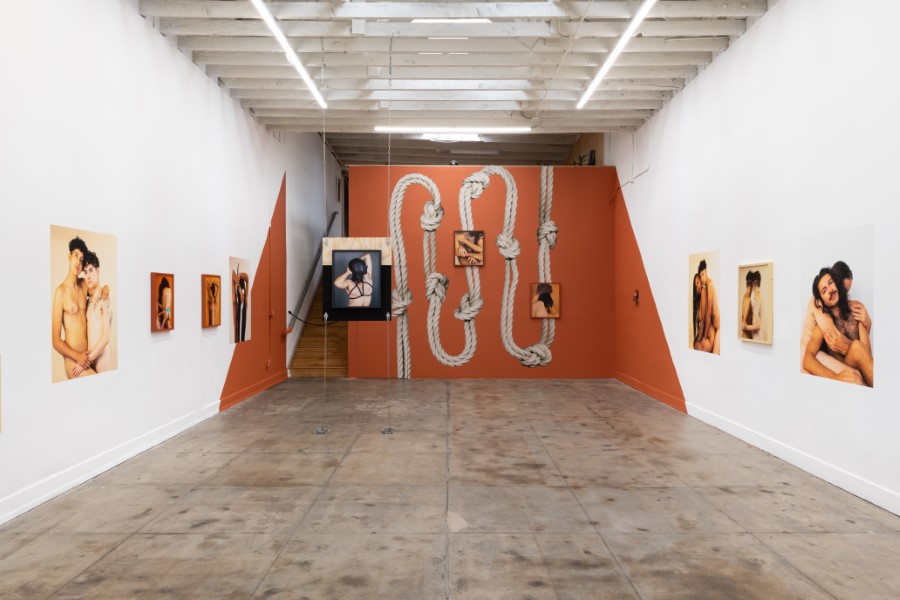
MARCEL PARDO ARIZA: AFTER TOUCH
Marcel Pardo Ariza (b. 1991, Bogotá, Colombia) is a trans visual artist and curator that explores the relationship of representation, kinship and queerness through constructed photographs, color sets and installations. Their practices celebrate the erroneous, navigate intergenerational connection, and question arbitrary paradigms while pushing against the boundaries of photography.
After Touch, at OCHI Gallery (Los Angeles, CA),offers a suite of their new photographs and installations. Conceptualized while sheltering in place in Oakland, CA in 2020 and actualized in the midst of transition, After Touch features lovingly composed images of Pardo Ariza’s transnational and local family, lovers, and dear ones in physical contact after prolonged isolations. They hug and kiss, they lock eyes and hold each other firmly, they play and prepare to play, they nuzzle, pressing or weaving their bodies together—all acts of reunion, pleasure, healing, and testimony.
Pardo Ariza photographs their kinship communities against an array of honey-colored, tangerine, terra cotta, or blush backdrops—a palette that emphasizes skin tones and expands skin color into the space beyond the figures.
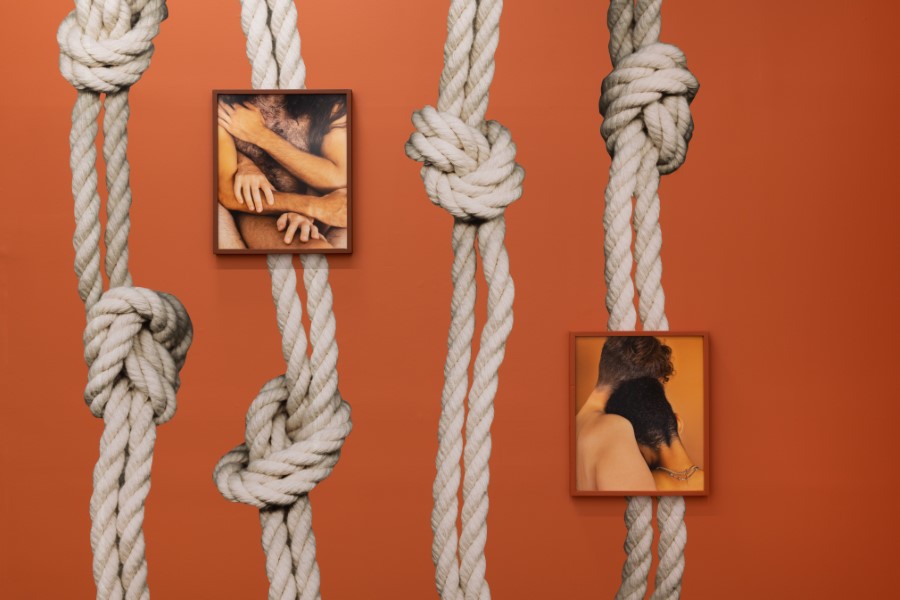


Crops of fleshy curves, hairy creases, and supple bends of unadorned and unclothed bodies assemble like an architecture of bodily contact. Pardo Ariza is acutely aware of the precariousness of representation—how it can be and is often used to restrict or control. Pardo Ariza creates support for each subject’s self-determination via anonymity through concealed faces, aliases in titles, or most notably by adhering images that feature direct eye contact with the camera-cum-audience directly to the gallery walls—restricting these artwork’s salability and their potential re-exhibition.
Those not nude sport select gear—collars, corsets, hats, thongs, and platform shoes. Latex tape, rope, fetish masks, and floggers all create abstract or indirect pathways to touch—traces of a recent touch, a dissociative way to touch oneself, or the glorious anticipation of a touch to come.
Since the lockdown, the meaning and methods of touch have irrevocably shifted and Pardo Ariza reifies this moment within the discourse of queerness, trans identity, and BDSM culture. “We couldn’t have imagined a time [pre-pandemic] where touch, or lack of touch, would become an act of solidarity,” says Pardo Ariza. The present time is a gift—a chance “to reimagine how we want to live, with whom, and how we can and should take care of each other.”



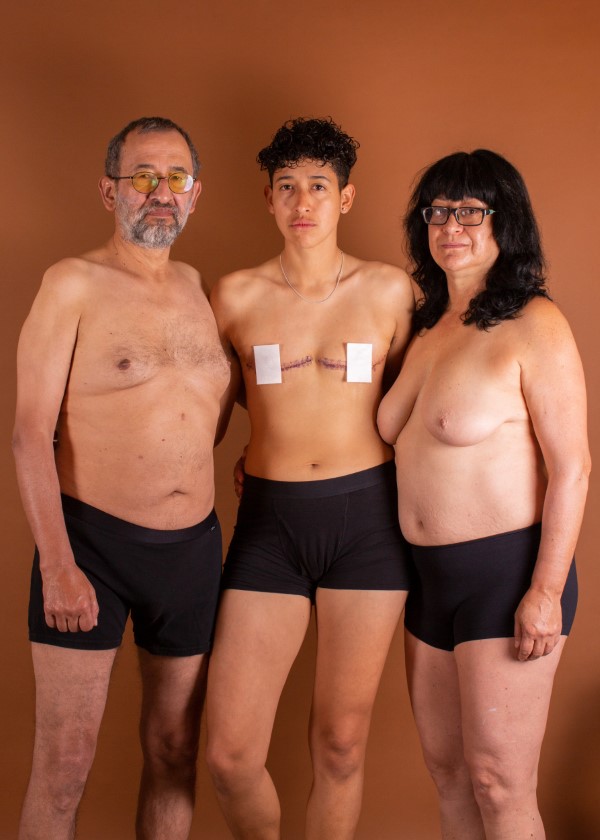
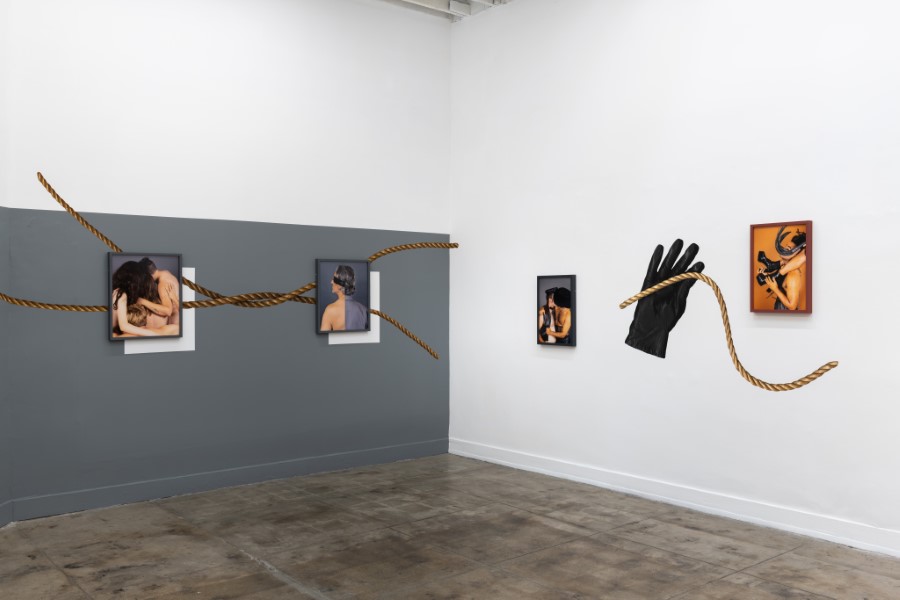
MARCEL PARDO ARIZA: AFTER TOUCH
OCHI, 3301 W Washington Blvd, Los Angeles, California
September 18 through October 23, 2021
También te puede interesar
Tania Bruguera le Habla al Poder en su Retrospectiva en San Francisco
Yerba Buena Center for the Arts (YBCA), en San Francisco, California, presenta hasta el 29 de octubre de 2017 la exhibición itinerante "Tania Bruguera: Talking to Power / Hablándole al Poder", una revisión retrospectiva...
TANYA AGUIÑIGA: TELAR TERRENAL
La práctica artística de Tanya Aguiñiga se ve fuertemente influenciada por las técnicas artesanales tradicionales de México y la América Latina precolombina. Empleando técnicas de tejido sin telar, así como nudos, punto y ganchillo,...
Topologies of Excess:a Survey of Contemporary Practices From Puerto Rico
Cuesta College and the Harold J. Miossi Art Gallery have invited eight Puerto Rican artists whose work examines the notion of ‘excess.’ In the island’s marginal corners, excess has helped to manifest emancipatory practices,...

